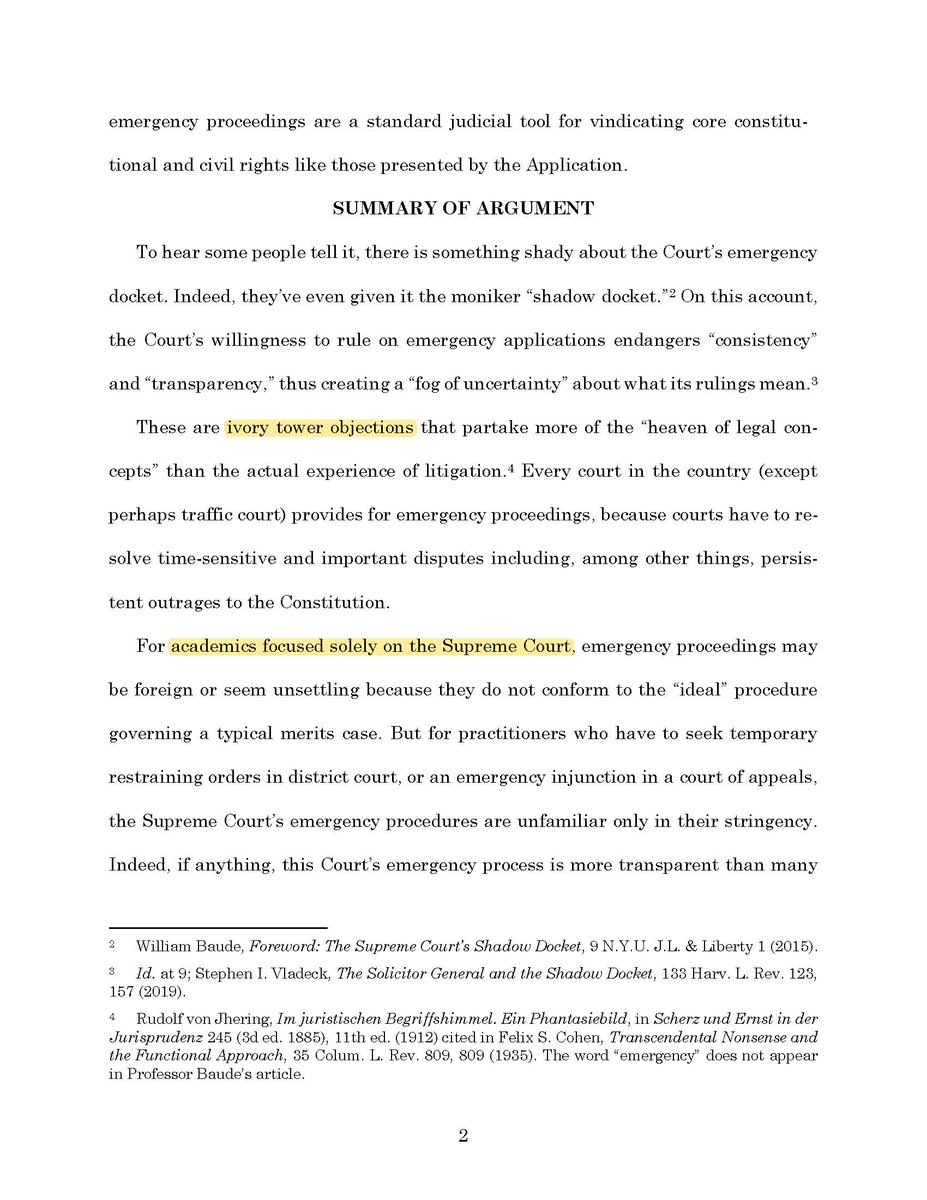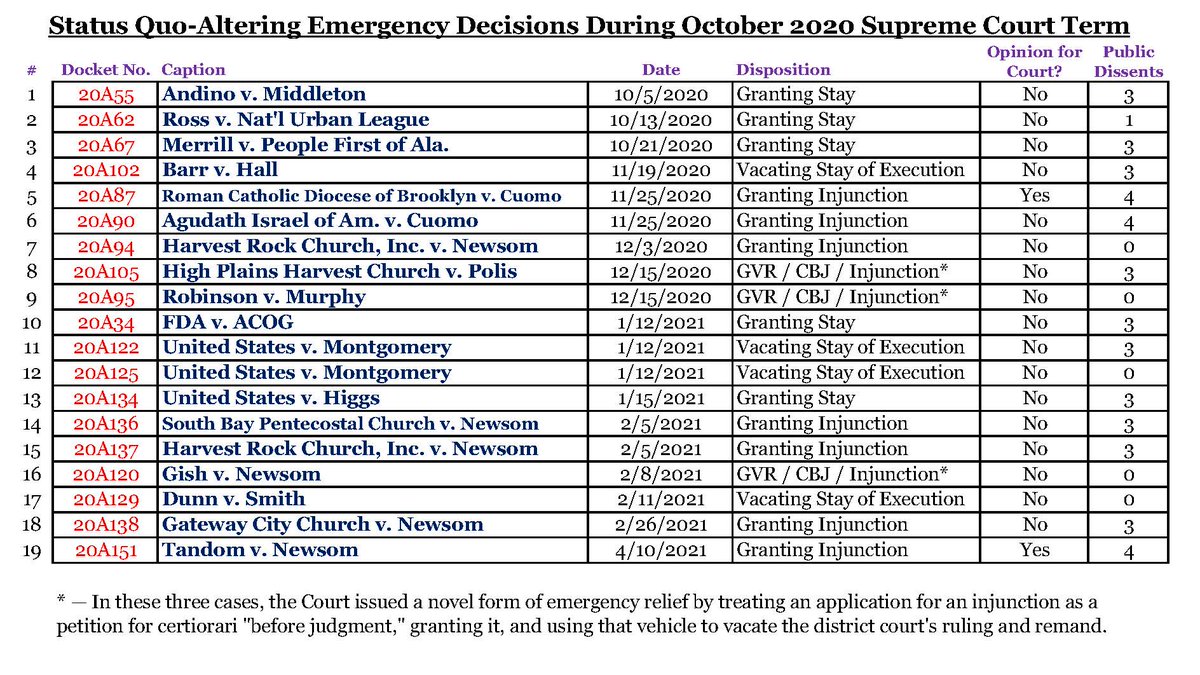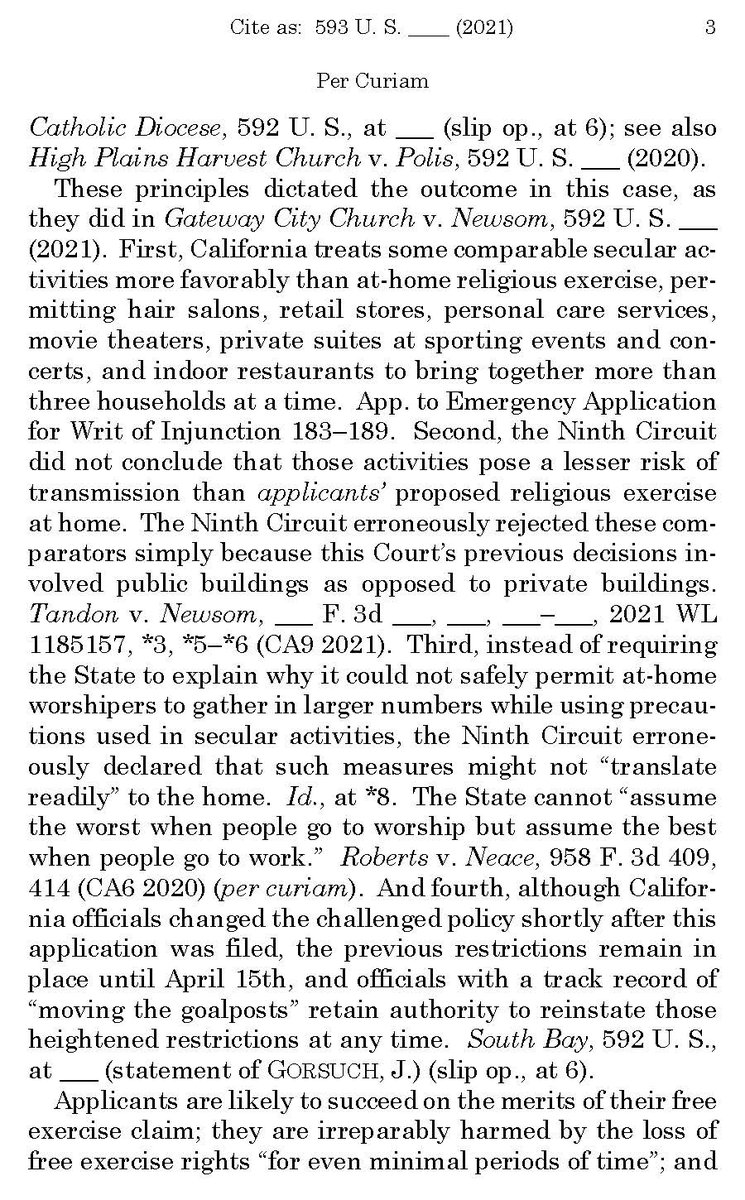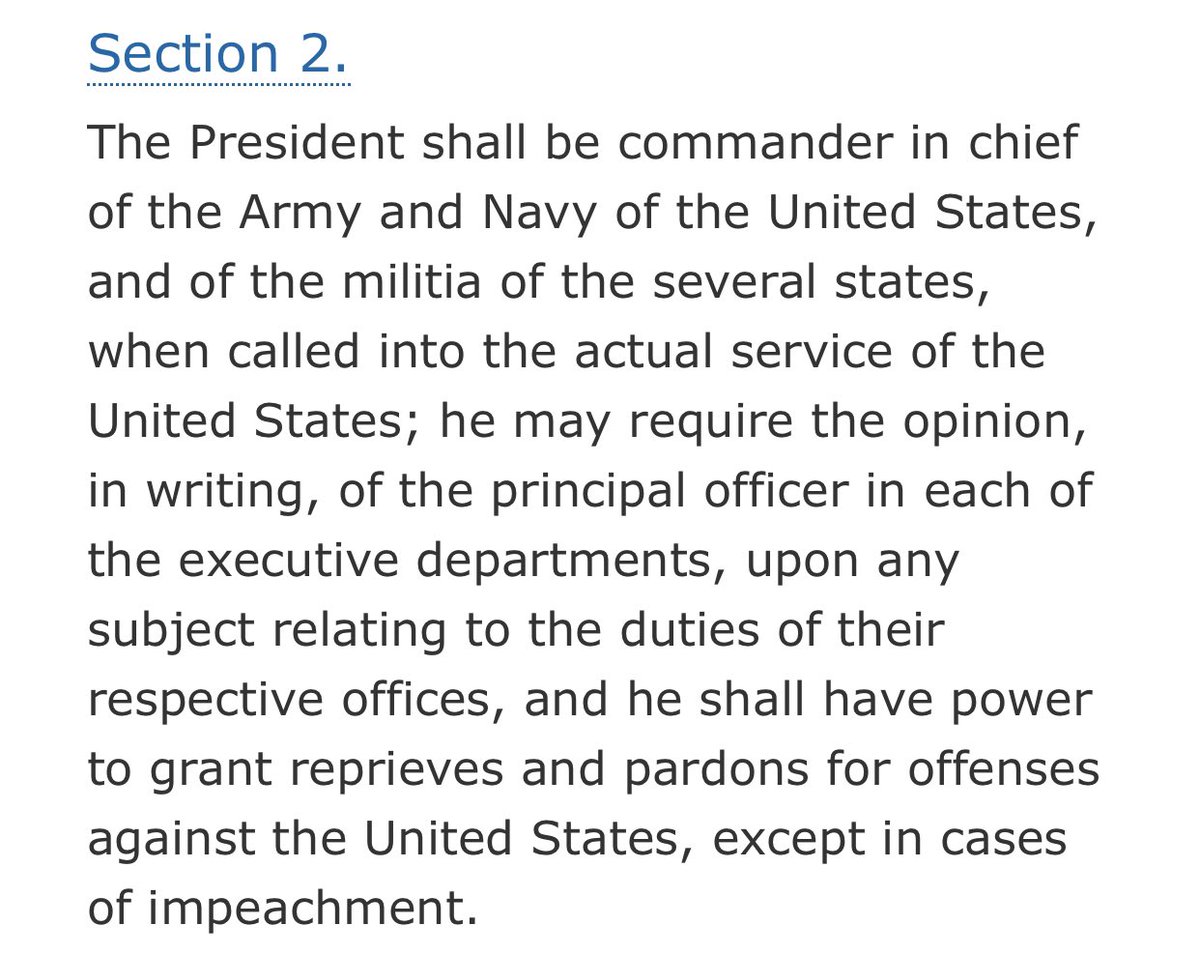
New Becket Fund amicus brief in support of emergency injunction against California COVID rules attacks criticisms of #SCOTUS's "shadow docket" as "ivory tower objections" by "academics focused solely on the Supreme Court."
supremecourt.gov/DocketPDF/20/2…
supremecourt.gov/DocketPDF/20/2…

I'll leave to others whether Becket is fairly describing the critics. But it's worth stressing that it's clearly mis-describing the criticisms. The objections aren't to the *existence* of an emergency docket; it goes without saying that every court, including #SCOTUS, needs one.
Rather, the objections are to (1) how often #SCOTUS has used such orders to change the status quo recently; (2) usually *without* any reasoning for the Court; (3) in at least apparent defiance of its own standards for granting such relief; & (4) *sometimes*, with no "emergency."
Becket may believe that these criticisms are outweighed by the benefits of the *results* in these cases. So be it.
But that's not the same as insinuating, as its amicus brief does, that the criticisms are specious charges (and by folks who don't know what they're talking about).
But that's not the same as insinuating, as its amicus brief does, that the criticisms are specious charges (and by folks who don't know what they're talking about).
• • •
Missing some Tweet in this thread? You can try to
force a refresh









